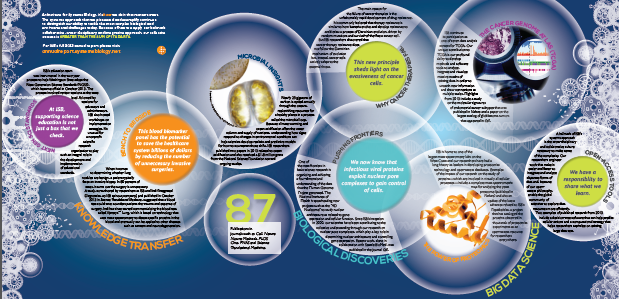ISB’s 2013 Annual Report is Now Available
 isbscience.org/news/2014/07/14/isbs-2013-annual-report-is-now-available/
isbscience.org/news/2014/07/14/isbs-2013-annual-report-is-now-available/
Institute for Systems Biology has a dizzying breadth of research projects. But when we talk about what we do, it’s how we do it that matters most. The systems approach that we pioneered and exemplify continues to distinguish our ability to tackle the most complex biological and environmental challenges today. Because of how we apply our hallmark collaborative, cross-disciplinary and integrative approach, our collective success is greater than the sum of the parts. We’ve highlighted some of the headlines from 2013 that celebrate specific milestones, but together attest to ISB’s continued leadership in systems biology.
Visit the Annual Report web site or view the PDF version:






